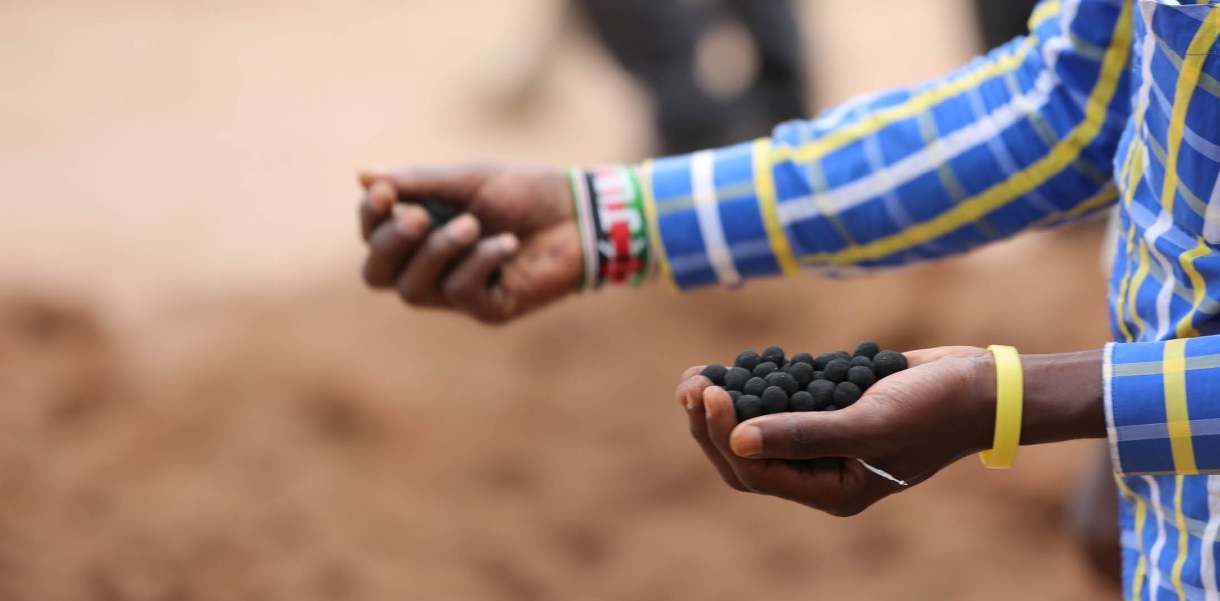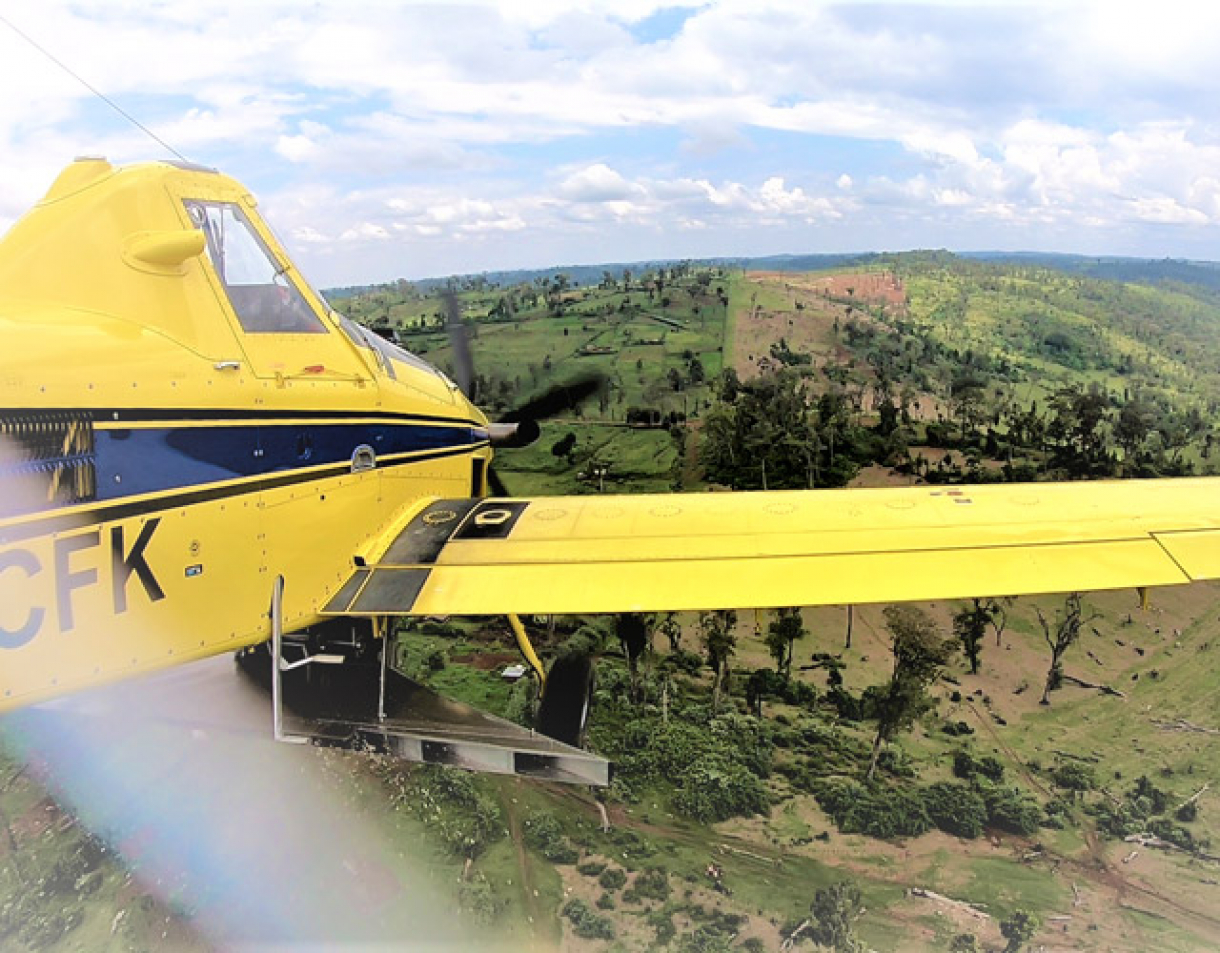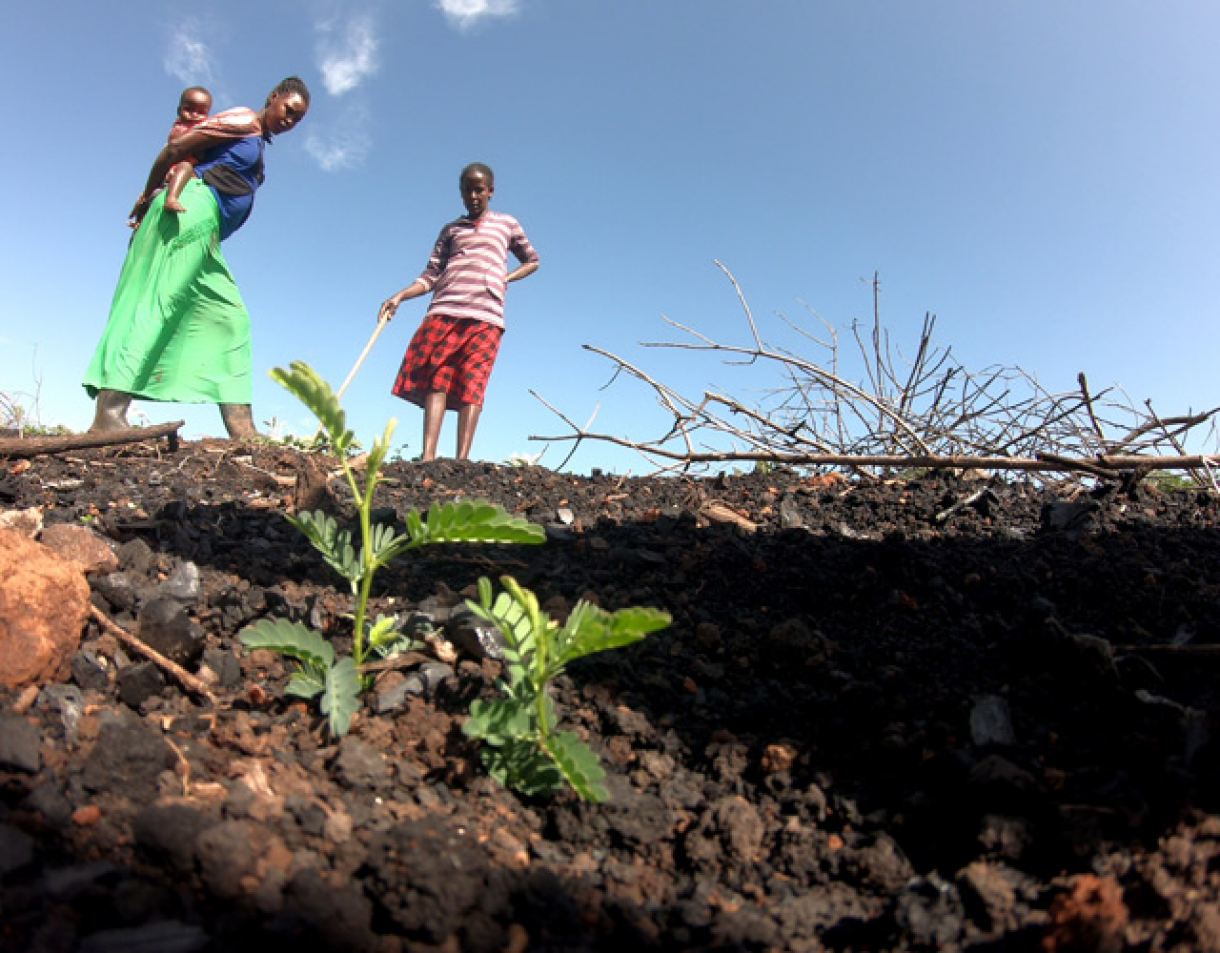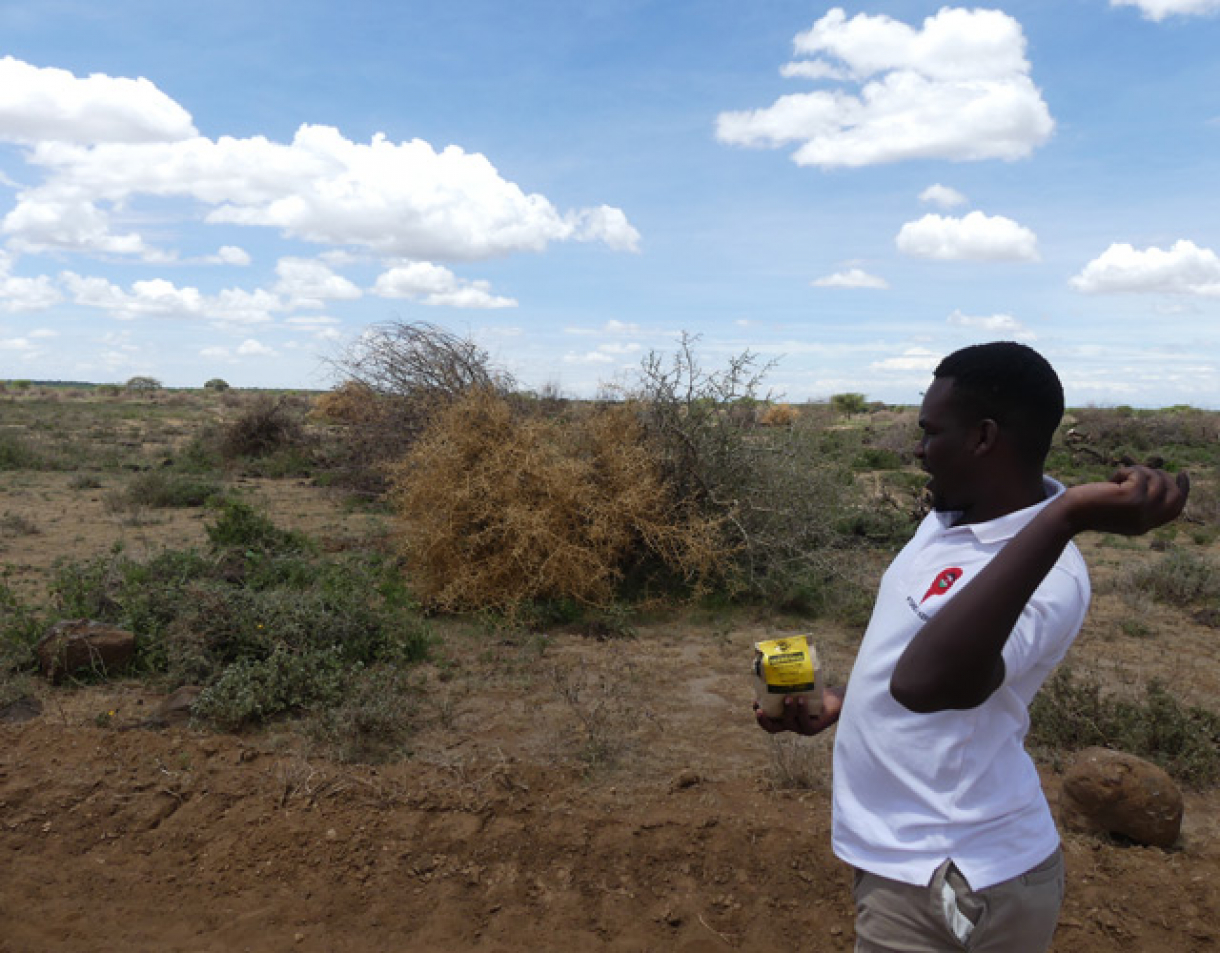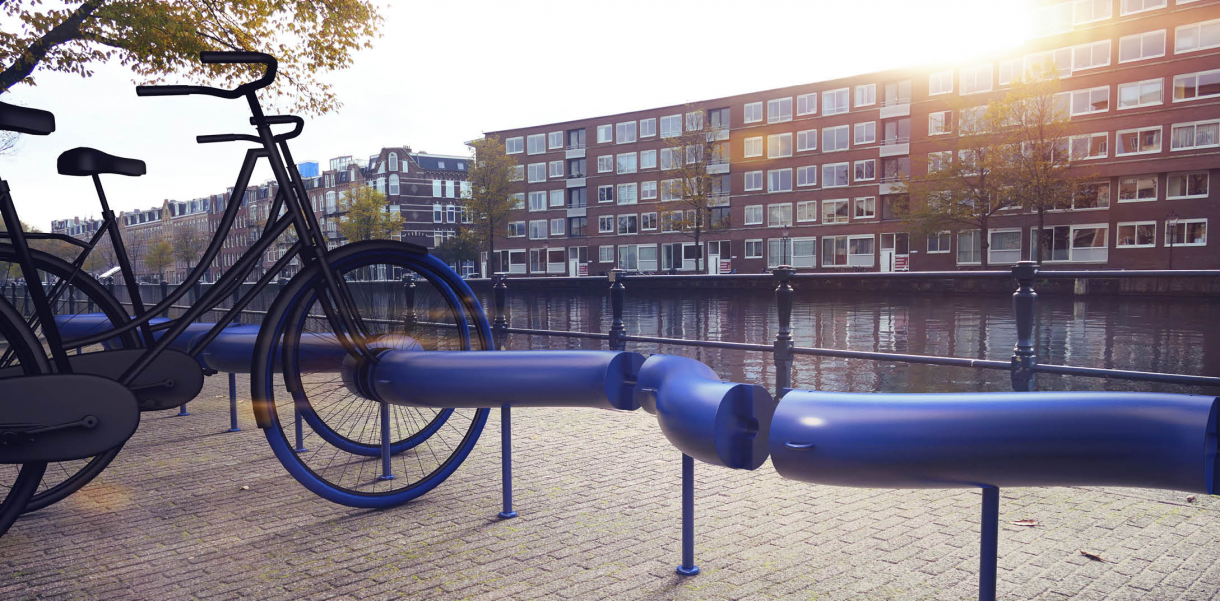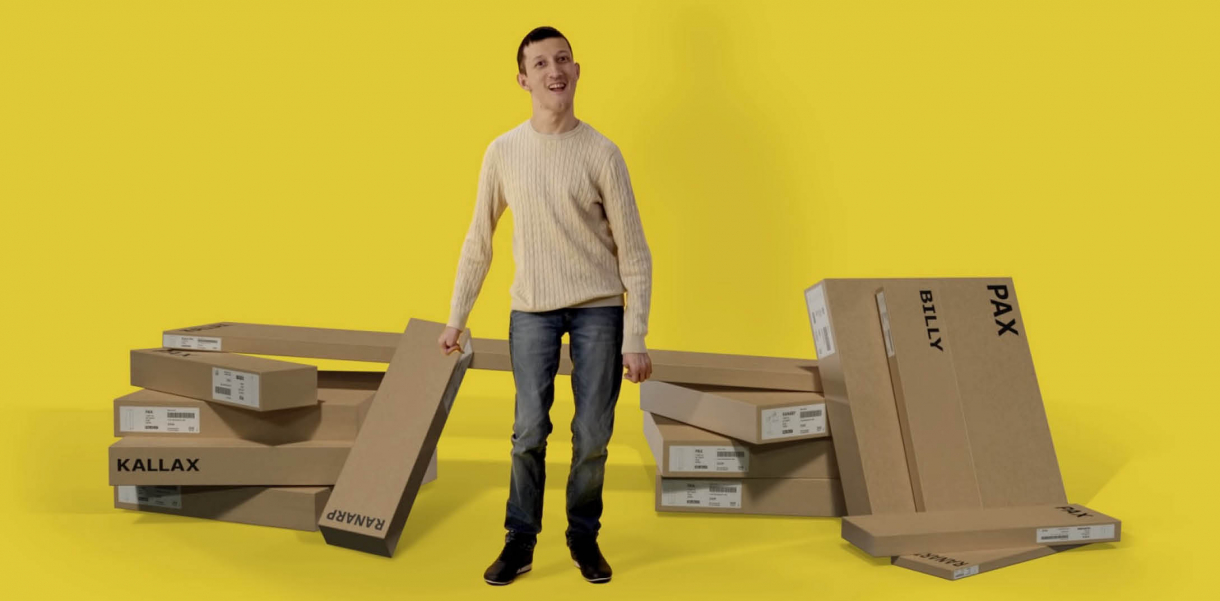Planting trees and grass are two of the most sustainable ways to help the environment. But, in places where temperatures and predators can interfere with the germination process, the process of spreading seed must be more efficient. That’s why Seedballs Kenya decided to reassess and repackage seeding as we know it.
Maybe you’ve already guessed what Seedballs are but, probably not what they’re made of. The 1-2 cm diameter balls that surround the seeds are made of powdered charcoal glued together with organic binders. Bare seeds often get eaten or destroyed by insects, rodents, birds and other mammals. The charcoal layer disguises the seeds within, which increases chances of survival over a long period of time.
Actually, everything in this ball works towards keeping the seed alive: As heavy rain will crumble the ball and expose the seed, the charcoal becomes a nutritious substrate and the organic binders act as fertiliser during seed germination.
The balls are inexpensive and require minimal physical effort to distribute. So far, distribution has been done with everything from slingshots to balloons, paragliders to camels. The local community also benefits as charcoal vendors and seed farmers make profits by selling their byproducts. In the future, the balls will bring biodiversity and increase the community’s water supplies in quality, quantity and sustainability.
"To date, some six million Seedballs have been purchased and scattered.”
Seedballs currently has a stock of 12 different species of trees that are commonly over-harvested for woodfuel and three species of rangeland grasses that are indigenous or endemic to Kenya. To date, more than six million Seedballs have been scattered over approximately 100,000 hectares in over 30 locations across Kenya. They’ve even exported balls to the Democratic Republic of Congo and Tanzania.
Seedballs continue to research, educate and optimise the balls while understanding that growing trees takes time, patience and an ability to learn from nature.
Designers: Seedballs Kenya
UN SDGs: Sustainable cities and communities & Life on land
Seedballs from The Index Project on Vimeo. Music: Lee Rosevere

